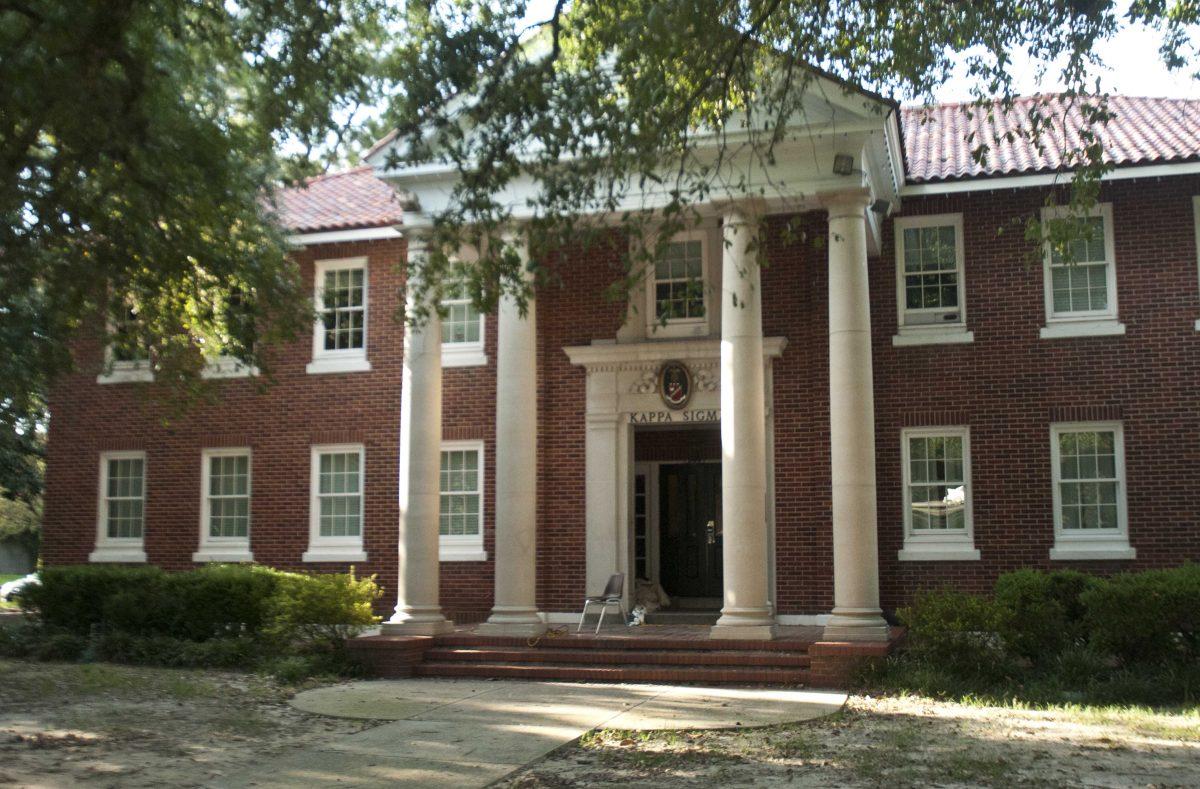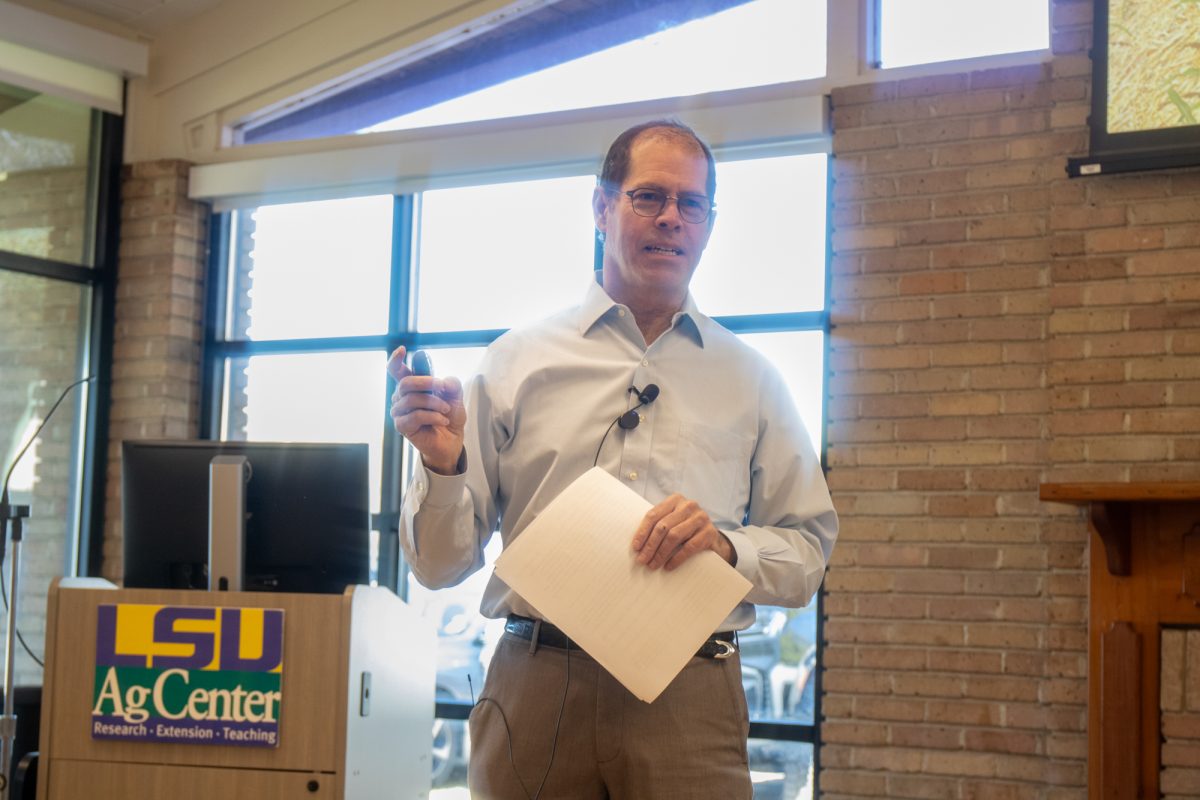Sept. 14 marks the first anniversary of University freshman Max Gruver’s death. Max died from acute alcohol poisoning and aspiration after being hazed by members of Phi Delta Theta fraternity. He had a blood alcohol content of .495 at the time of his death — six times the legal limit to drive. In the year following his death, the University introduced new policies meant to protect students from hazing incidents and alcohol abuse both on and off campus.
LSU President F. King Alexander implemented 31 new policies regarding LSU Greek Life. These include a ban on hard alcohol and common-source alcohol at registered Greek Life events, the moving of Greek tailgates from the Parade Ground to the chapter houses and the creation of a web portal featuring information and past disciplinary issues for each chapter and the University’s ability to “spot-check” any Greek Life event.
The new regulations only begin to scratch the surface of the administration’s decades-long inability to bring fraternities to task. The University continuously fails to give our campus meaningful policy to eliminate an ever-present problem. If the University does not properly oversee and enforce its policies, there are simply too many loopholes to impart legitimate change.
Fraternities will find ways to drink, and as seen at the first gameday tailgate on Sept. 8, it’s not difficult to circumvent the policies. Some fraternity members set up unsanctioned tailgates just yards from the Parade Ground where they freely violated the ban on hard liquor and common source alcohol by setting up kegs.
If fraternities can dodge the University’s policies while still being in open view of the Parade Ground, it is too easy for students to fall into the same dangerous rituals we’ve seen in the past. Little has been done to reform the culture as a whole, with only cosmetic changes to appease the angry masses.
The deadly hazing incident is not an outlier — it’s indicative of a larger culture radiating through fraternities at the University and around the country. Past incidents show forced binge drinking and hazing rituals are more habitual than isolated. Simply banning hard alcohol and moving tailgates off the Parade Ground is not enough to repair a system so broken that hazing and binge drinking incidents are as frequent as they are unsurprising.
Only five of the 27 on-campus fraternities do not have any risk-management violations in the five years listed on the LSU Greek Life website. Almost every fraternity was investigated for hazing or alcohol misconduct, yet none of the fraternities had its charters permanently revoked, and only three received suspension for three years each.
At least six of the investigations involving fraternities were related to forced, excessive consumption of alcohol. None of the fraternities investigated for allegations had its charters permanently revoked — most only received a letter of reprimand with no loss of privileges or probation. Even on probation, fraternities are not required to give up all social events or alcohol. Hazing, which the University labels intolerable, is met with an overwhelming amount of tolerance by way of leniency.
For several decades, we’ve seen a sinister cycle repeat itself at the University. A fraternity is cited for hazing rituals, binge drinking or worse, and the University reprimands the chapter with usually no more than a slap on the wrist or an unenforced regulation. The fraternity continues on as normal, with very few ever facing lasting consequences.
Rather than being proactive in its attempts to prevent its occurrence, the University treats hazing as an unavoidable phenomena, only addressing the problem following a gross display of its presence. Even now, it seems as though we’re waiting for another incident to slip through the cracks of a system riddled with loopholes.
We are not the enemies of fraternities or LSU Greek Life. When Alexander temporarily changed tailgating policy to disallow Greek students’ right to assemble in groups of 10 or more or wear Greek-related attire and accessories, The Editorial Board defended their First Amendment rights and suggested the University focus its efforts on hazing and alcohol education or in increasing oversight on the Parade Ground to prevent altercations. Though we’ve seen the policies implemented, the University has failed to give proper oversight.
Gov. John Bel Edwards signed a bill package in May to strengthen penalties for hazing, require universities to provide hazing education and prevention training, provide protections to those who report cases of hazing and penalize those who do not seek help for someone in distress. Though the state’s new measures are undoubtedly a step in the right direction, we shouldn’t have to wait on state laws to fix a problem on our own campus. Ultimately, it’s the University’s responsibility to make sure all policies are adequately executed.
The ability to participate in Greek Life is a selling point often used in recruiting prospective students, and the University profits tremendously from its presence on campus. We must question why a university that promotes Greek Life so vehemently is not held responsible for the negative outcomes that are so often a product of the very institution they propagate.
The new Greek Life policies are not strong enough to truly change the culture at the University. Simply observing tailgating on Saturday confirmed what we already assumed — the toxic culture that existed before Max’s death is still very much present. The punishment, or in this case, the regulations, simply do not match the crime. This campus deserves better. Our students deserve better. Max deserved better.
Editorial: LSU Greek Life policies fail to provide Max Gruver justice, change culture
September 11, 2018
LSU fans enjoy tailgating weather on Saturday, Sept. 9, 2017, on the Parade Ground under the Memorial Tower.
More to Discover










